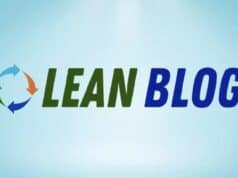by Mike Lopez
Business Week ran an article about some of Hyundai's recent problems. One of them seems to be a misguided quality program. Although the article says that,
In recent years, no other major automaker has boosted sales and quality as fast the the Korean company.
The article later goes on to say that Hyundai's idea of quality is not Lean.
Rather than improving the way it makes cars to minimize defects à la Toyota Motor Corp., Hyundai stepped up inspections and testing. The result: It needs two-thirds more man-hours to build each car than Nissan and Toyota do.
This is a great example of focusing on local optima (great quality) at the expense of systematic improvements (continuous improvement of the manufacturing process and lower costs).
Please scroll down (or click) to post a comment. Connect with me on LinkedIn.
Let’s build a culture of continuous improvement and psychological safety—together. If you're a leader aiming for lasting change (not just more projects), I help organizations:
- Engage people at all levels in sustainable improvement
- Shift from fear of mistakes to learning from them
- Apply Lean thinking in practical, people-centered ways
Interested in coaching or a keynote talk? Let’s talk.
Join me for a Lean Healthcare Accelerator Trip to Japan! Learn More








I don’t know if I’d be as generous as calling a reliance on inspection as a “local optima” that would lead to “great” quality. Not only is the inspection approach more labor intensive, I’d argue that the resulting quality isn’t as good as building quality in through the lean methods.
Three years ago I had the opportunity to tour the Corvette Assembly Plant in Kentucky. GM assembles 250 cars a day on that line and I was surprised to see that 30% to 50% of the cars were routed to repair cells at the end of the assembly process. Inspection and rework account for the quality of almost half of the vehicles that get shipped.
I lost my desire to own a Vette on that day. I would prefer an old version Saturn that was made correctly, not fixed to pass inspection.
Same was true at the BMW plant in South Carolina. Little evidence of lean methods and they bragged about how many inspections the car went through. That resonates better with the general public than it does with lean folks.
I would like to share a little perspective on Hyundai. They are in fact pursuing the Toyota Production System aggressively. This is quite a statement, because the Koreans and Japanese are not always best of friends. They are working very hard at it, and know they have a long way to go, but feel they can close the gap quickly (which is optimistic, obviously). Until they get there, they need to make sure they protect the customer. They have a quality PERCEPTION problem with their customers, so they have had to make sure nothing bad gets to the customers. They only way to contain the problem is through inspection, and so they are aggressively trying to do that well (many do it, but do it poorly) by inspecting the right stuff at the right time. You can’t criticize Hyundai for not being Toyota yet, and shouldn’t for doing the right thing as they effort to close the gap from where they CURRENTLY are to where they ASPIRE to be.
Comments are closed.